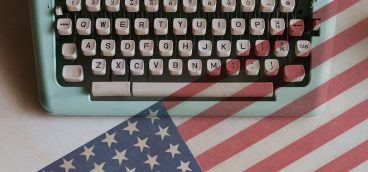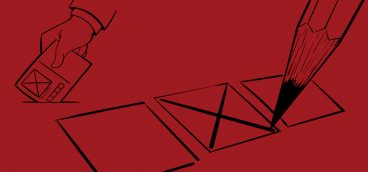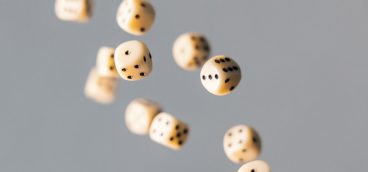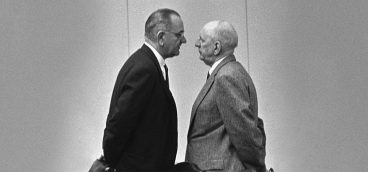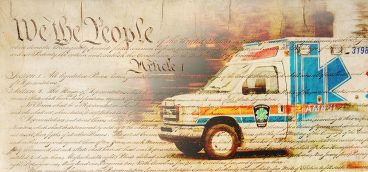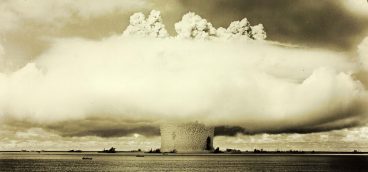The Power of the Press?

For readers who missed part 1 of this series of posts, I am summarizing a fictional novel written almost forty years ago.
With Plans A and B dead, the Approvals Panel began to discuss a fallback plan.
One way to expose the Black Hole plot would be for George—or someone—to simply make it public. Call a press conference, outline the plot, pass out copies of the Project Black Hole file to the newspapers.
But Grace Atkinson was dismissive of this plan. The great likelihood, she pointed out, was that as soon as President Johnson heard that the news conference was going on, he would have George arrested on the spot and charged with treason. Maybe the exposure would cause Johnson to drop the plot and maybe not. But did George really want to spend the rest of his life in prison?
The discussion to this point had lasted all morning and everyone needed a break, so the panel broke up and people wandered off to have lunch. Some ate in the kitchen, some in the dining room, and some took advantage of the nice weather to eat out on the porch.
When the group reassembled, at about 1:30, Grace Atkinson was missing. Jenny Leader explained that Grace was suffering from blinding headaches and balance issues. At her age, a fall could be dangerous, so she had taken herself to bed and was currently under sedation.
Without Grace’s voice in the mix, the conversation wandered aimlessly. No one seemed to be able to come up with a plan that would a) bring the plot to the attention of Congress and the public, b) do it in a way that would make it extremely unlikely that Johnson could proceed with the plot anyway, and c) keep the disclosing party(ies) out of jail.
Around 5 p.m., Jenny stood up and began pacing back and forth in the dining room. Then, appearing to have made up her mind about something, she began to speak, actually interrupting someone else in the middle of his sentence.
“I assume you all know who Winslow Smith is,” she said. “He writes a column for the Times?”
Everyone knew of Smith, of course—he was one of the most famous columnists in America. His sharp wit and sharper pen were legendary and he seemed to be utterly fearless.
“Does anyone know Smith personally?” Jenny asked. A few people had met Smith at one event or another, but no one actually knew him.
Jenny said, “I know him quite well. You see”—Jenny’s eyes slid sideways toward her much older husband, George—“before I met George, Win and I…, became close.”
George Leader was obviously surprised by this disclosure, making for an uncomfortable moment in the room. But Jenny plowed ahead.
“Over the years Win and I have stayed in touch. When he writes a particularly astute column I’ll send him a note of congratulations. When I think he’s way off base, I’ll tell him so.
“What I suggest is that I sit down with Win—who is gay, by the way, George—and bring him into the picture. He’ll figure out how the plot can be exposed without anyone’s name being connected to it.”
Jenny’s idea seemed to have possibilities, and from then through dinner the members of the Approvals Panel discussed its pros and cons. The panel took a break after dinner, the members conferring informally amongst themselves, and then reconvened over brandy on the back porch.
Then, to everyone’s surprise, Grace Atkinson hobbled out on the porch, leaning on her cane. George Leader immediately vacated his seat and pushed it closer to Grace, helping her sit down. Jenny followed Grace in the door and tapped a spoon against her brandy glass.
“Folks,” Jenny said, “I went up to check on Grace an hour ago and found her feeling much better. I told her my idea about using Win Smith to expose Black Hole, but Grace has pointed out to me that it’s unlikely to work. Grace, why don’t you tell everyone what you told me.”
Speaking softly, but confidently, Grace explained.
“Back in 1967,” she said, “Lyndon Johnson became so concerned about his health that he decided to seek medical advice. Not knowing where to turn without someone finding out what he was up to, Johnson called Winslow Smith.
“As you probably know, Smith has been a sometimes-brutal critic of the American healthcare system, and along the way he’s become an expert on what works and what doesn’t.”
George handed Grace a glass of brandy, but Grace waved it away.
“So the President sent Smith a large dossier containing all his own health records, as well as the health records of every male member of the Johnson family he could get his hands on. No one knows which physicians Smith consulted, though rumor has it that the team was led by Michael DeBakey.”
“I did hear something about that at the time,” one of panel members said. “But I thought it was just a rumor.”
Grace shook her head. “It was true,” she said. “But here’s the key point. Smith, as you all know, was a strong supporter of Johnson’s Vietnam policies. That’s one important reason Johnson trusted him to handle the medical inquiry.
“Part of the deal with Smith,” Grace continued, “was that he would never make the medical inquiry public. And because opposition to the war was rising quickly at that time, Smith also agreed that if he ever had doubts about Vietnam, he would come to the President before writing anything. If, after hearing Johnson’s side of the story, Smith still disagreed, he could go ahead and publish his views.”
“The long and short of it,” Jenny said, “is that Win Smith has apparently given the President his word. He won’t cooperate with us on Black Hole without talking to Johnson.”
There had been high hopes for Plan C, and gloom settled over the room.
Finally, George Leader sighed and said, “Grace, do you have anything at all to suggest?”
“Yes. And if it hadn’t been for this damned illness I’d have suggested it this morning. “ Grace looked around the room, pausing at each panel member before moving on. Then she said, “There is only one way to stop Project Black Hole and that’s to remove Lyndon Johnson from the Presidency. We need to mount a coup.”


